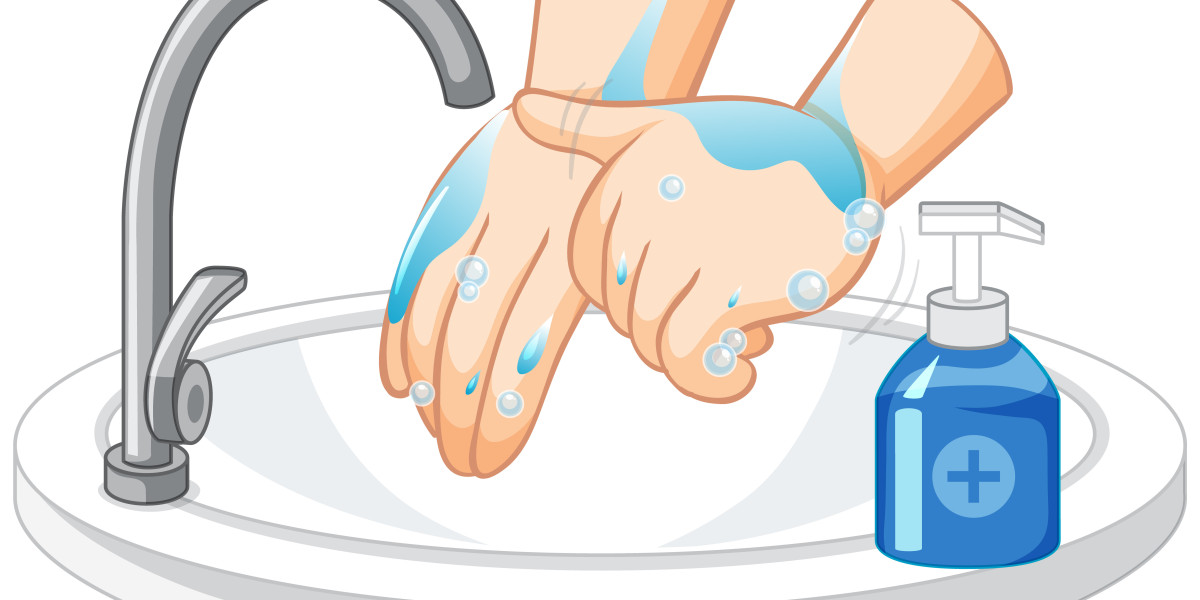Chronic conditions such as diabetes, heart disease, and arthritis require ongoing management and monitoring. Without proper care, these conditions can lead to complications, reduced quality of life, and even life-threatening situations. A reliable primary care and wellness provider plays a crucial role in helping individuals manage their chronic illnesses through regular checkups, personalized treatment plans, and comprehensive support.
What Are Chronic Conditions?
Chronic conditions are long-term health problems that typically last a year or more and require continuous medical attention. Some of the most common chronic conditions include:
- Diabetes
- Hypertension (High Blood Pressure)
- Heart Disease
- Chronic Obstructive Pulmonary Disease (COPD)
- Arthritis
- Asthma
- Kidney Disease
Managing chronic conditions requires a comprehensive approach that includes regular monitoring, lifestyle changes, medication management, and support from healthcare professionals. A reliable primary care and wellness provider is at the center of this care, helping patients navigate the complexities of their conditions.
The Role of Primary Care in Chronic Condition Management
1. Regular Monitoring and Checkups
Patients with chronic conditions need regular monitoring to track their health and adjust their treatment plans as needed. A reliable primary care and wellness provider ensures that patients have consistent checkups, during which vital signs, lab results, and symptoms are reviewed. This helps to:
- Detect Complications Early: Regular checkups allow providers to identify any worsening of symptoms or the onset of complications, such as kidney damage in diabetes patients or heart problems in those with hypertension.
- Adjust Treatment Plans: As chronic conditions can change over time, primary care providers adjust medications, dietary plans, and lifestyle recommendations based on a patient’s current health status.
For instance, a diabetic patient may need more frequent blood sugar monitoring, or a heart disease patient may require changes in medication dosage to maintain optimal heart function.
2. Medication Management
Many chronic conditions require long-term medication to control symptoms and prevent complications. A reliable primary care and wellness provider helps patients manage their medications by:
- Prescribing the Right Medications: Ensuring that patients are on the most effective and appropriate medications for their condition.
- Monitoring Side Effects: Checking for any adverse reactions or side effects from medications and making adjustments as necessary.
- Ensuring Adherence: Educating patients on the importance of taking their medications as prescribed and helping to address barriers to adherence, such as forgetfulness or side effects.
Managing medications correctly can prevent conditions from worsening and reduce the risk of complications.
3. Personalized Treatment Plans
Each patient’s chronic condition is unique, requiring a personalized approach to treatment. A reliable primary care and wellness provider tailors care plans to suit the specific needs and circumstances of the patient. This may include:
- Lifestyle Recommendations: Providers give advice on diet, exercise, and other lifestyle factors that can help manage the condition. For example, a patient with hypertension might be advised to reduce salt intake, while a patient with diabetes might receive guidance on managing carbohydrate consumption.
- Collaborating with Specialists: In some cases, chronic conditions require input from specialists, such as cardiologists, endocrinologists, or pulmonologists. Primary care providers coordinate care with these specialists to ensure that patients receive comprehensive treatment.
- Holistic Care Approach: A reliable primary care and wellness provider may also incorporate mental health support, physical therapy, or other complementary treatments to address all aspects of a patient’s well-being.
By creating individualized care plans, primary care providers help patients achieve better health outcomes and maintain a higher quality of life.
The Importance of Lifestyle Changes in Managing Chronic Conditions
Lifestyle changes play a critical role in the management of chronic conditions. A reliable primary care and wellness provider works closely with patients to implement positive changes that can improve their health. Key lifestyle adjustments include:
1. Healthy Eating Habits
Diet is one of the most important factors in managing chronic conditions such as diabetes, heart disease, and obesity. A reliable primary care and wellness provider can guide patients on:
- Reducing Sugar and Refined Carbohydrates: Essential for managing blood sugar levels in diabetic patients.
- Limiting Sodium Intake: Crucial for controlling high blood pressure and preventing heart disease.
- Increasing Fiber Intake: Helps manage cholesterol levels and improves digestion.
- Incorporating Heart-Healthy Foods: Such as fruits, vegetables, whole grains, lean proteins, and healthy fats.
Providers may also refer patients to dietitians or nutritionists for more specialized dietary support.
2. Regular Physical Activity
Exercise is another vital component of managing chronic conditions. A reliable primary care and wellness provider recommends physical activities that are suitable for each patient’s condition and fitness level. For example:
- Cardiovascular Exercise: Walking, cycling, or swimming can improve heart health and help manage weight.
- Strength Training: Can help improve muscle tone and support joint health, particularly in arthritis patients.
- Flexibility and Balance Exercises: Such as yoga or tai chi, which can improve mobility and reduce the risk of falls in older adults or patients with balance issues.
Regular physical activity can lead to significant improvements in health, including better blood sugar control, lower blood pressure, and improved mental well-being.
3. Smoking Cessation and Alcohol Moderation
Smoking and excessive alcohol consumption can worsen many chronic conditions. A reliable primary care and wellness provider offers resources and support for quitting smoking and reducing alcohol intake. This may include:
- Smoking Cessation Programs: Offering nicotine replacement therapy, medications, and counseling to help patients quit smoking.
- Alcohol Moderation Counseling: Providing strategies to limit alcohol consumption, which can help manage conditions like hypertension, liver disease, and diabetes.
By making these lifestyle changes, patients can improve their health and prevent further complications from their chronic conditions.
Preventing Complications with Reliable Primary Care and Wellness
Chronic conditions, if not properly managed, can lead to serious complications. A reliable primary care and wellness provider helps patients prevent these complications by:
- Monitoring for Early Signs of Complications: Regular checkups allow providers to detect early signs of issues such as nerve damage in diabetes patients or worsening heart function in those with heart disease.
- Adjusting Treatment Plans: If a patient’s condition worsens or new symptoms arise, primary care providers can adjust medications, recommend additional therapies, or refer the patient to specialists for further evaluation.
- Educating Patients: Providers give patients the knowledge and tools they need to manage their conditions effectively, reducing the risk of hospitalizations and emergency situations.
For example, a patient with asthma may be taught how to use inhalers correctly to prevent asthma attacks, while a patient with heart disease might be educated on recognizing the signs of a heart attack or stroke.
The Benefits of Comprehensive Chronic Condition Management
Managing chronic conditions with the help of a reliable primary care and wellness provider offers numerous benefits:
- Improved Quality of Life: Patients who effectively manage their chronic conditions experience fewer symptoms, less pain, and a higher quality of life.
- Reduced Healthcare Costs: By preventing complications and avoiding hospitalizations, patients can lower their overall healthcare costs.
- Better Health Outcomes: With regular monitoring, personalized care, and lifestyle changes, patients can maintain better control of their chronic conditions and reduce the risk of long-term complications.
FAQs
Q1: How can primary care help manage chronic conditions?
A reliable primary care and wellness provider helps manage chronic conditions through regular checkups, medication management, lifestyle recommendations, and personalized treatment plans.
Q2: What lifestyle changes can improve chronic condition management?
Lifestyle changes such as eating a healthy diet, exercising regularly, quitting smoking, and reducing alcohol intake can significantly improve the management of chronic conditions.
Q3: How often should patients with chronic conditions visit their primary care provider?
The frequency of visits depends on the condition and its severity, but most patients with chronic conditions should see their primary care provider at least once every three to six months.
Q4: Can primary care providers prescribe medications for chronic conditions?
Yes, primary care providers can prescribe medications for chronic conditions and adjust prescriptions as needed based on the patient’s health status.
Q5: How do primary care providers prevent complications in chronic conditions?
Primary care providers monitor patients regularly, adjust treatment plans as needed, and educate patients on managing their condition to prevent complications.







